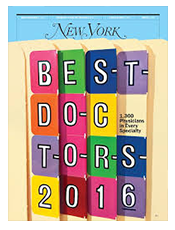Allergic Rhinitis

Allergic rhinitis, commonly known as hay fever, affects between 40 million to 60 million Americans each year. Symptoms include:
- Runny nose
- Itchy nose, eyes, mouth, throat or skin
- Frequent sneezing
- Post-nasal drip
- Cough
- Facial pressure
- Ear fullness
Hay fever can also cause many symptoms that affect your everyday life, which can include:
- Fatigue
- Headaches
- Limited activity
- Impaired hand-eye coordination
- Sleep disorders
- Decreased concentration and focus
ARE ALLERGIES INHERITED?
Allergic rhinitis can be passed down genetically from family members. If one family member has the condition, it’s likely another family member will suffer from this condition during their lifetime as well.
ARE THERE DIFFERENT TYPES OF ALLERGIC RHINITIS?
This condition can take on two separate forms:
- Seasonal: Spring, summer, and early fall are the most common times to experience symptoms. These symptoms are caused by allergic sensitivity from airborne mold spores or pollens from grass, trees, and weeds. Your child may have seasonal allergic rhinitis if they develop cold-like symptoms at the same time each year.
- Perennial: Perennial symptoms can be year-round. Potential causes include dust mites, pet hair, and dander. Perennial nasal symptoms are rarely caused by underlying or hidden food allergies.
Both forms may be experienced, with perennial symptoms being more active during the pollen seasons.
WHAT ARE TREATMENTS FOR ALLERGIC RHINITIS?
Environmental Control Measures
Controlling the conditions of the environment is the best place to start when it comes to getting rid of allergies.
- To keep your home free of allergens, keep windows closed during the pollen period.
- Wear glasses and sunglasses outside to keep pollen out of your eyes.
- Wash your hands immediately after petting an animal.
Medications
Allergy medications can be offered over-the-counter or prescribed by a doctor. They work quickly and will reduce inflammation in the nose.
- Antihistamines
- Corticosteroid nasal sprays
Immunotherapy (allergy shots, drops, or tablets)
Allergy immunotherapy has shown to be effective in long-term allergy symptoms.
- Decongestant nasal drops and sprays
- Sublingual Immunotherapy Treatment (allergy tablets)
NONALLERGIC RHINITIS
Rhinitis is not always associated with allergies. This condition usually affects adults and causes year-round symptoms, such as nasal congestion and runny nose.
This condition can be triggered by changes in temperature, cigarette smoke, fumes, and perfume.







